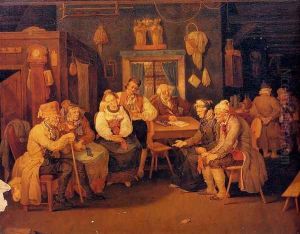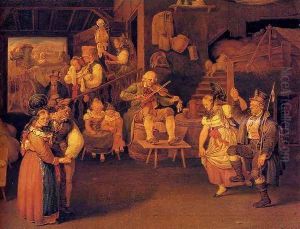Johannes Baptiste Pflug Paintings
Johannes Baptiste Pflug was a 20th-century German painter known for his contribution to the art scene during a period marked by significant historical upheavals and transformations. Born in 1912, Pflug's early life and development as an artist were inevitably shaped by the events of World War I and the subsequent interwar years in Germany, a time when the country was experiencing a cultural renaissance amidst economic and political turmoil.
After completing his art education, which was likely interrupted or influenced by the rise of the Nazi regime and World War II, Pflug would have had to navigate the challenges of creating art in an era where expression was heavily censored. Despite these challenges, he developed a unique style that reflected the complexities of the time.
Following World War II, Germany underwent a period of reconstruction and ideological realignment. Pflug, like many artists of his generation, was caught between the memories of a pre-war world and the realities of a divided Germany during the Cold War. His work from this period may have been impacted by the shifting political landscape and the emergence of new art movements such as Abstract Expressionism, which took hold in the United States, and Informel, which became popular in Europe.
In the post-war years, Pflug continued to evolve his practice, potentially engaging with themes of rebuilding, memory, and identity, which were common among artists of his time. Throughout his career, he would have witnessed the rise and fall of the Berlin Wall and the reunification of Germany, events that would have provided a rich backdrop for artistic exploration and expression.
Johannes Baptiste Pflug passed away in 1999, leaving behind a legacy that reflects the tumultuous history of 20th-century Germany. His artwork serves as a testament to the resilience and adaptability of artists working under the pressures of their historical circumstances. Pflug's contributions to the German art scene would be remembered for their embodiment of the human spirit amidst a century of change.

